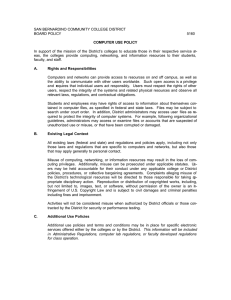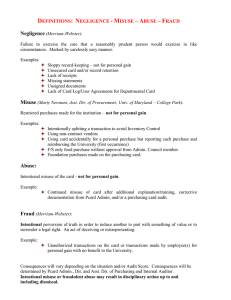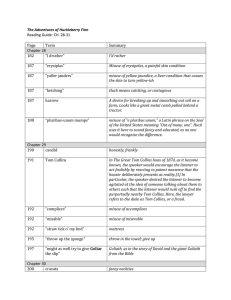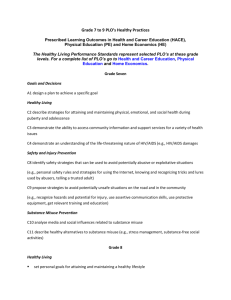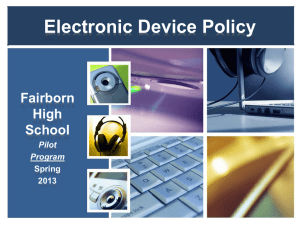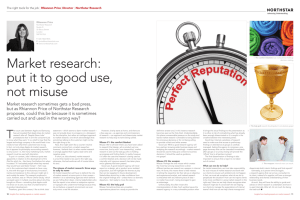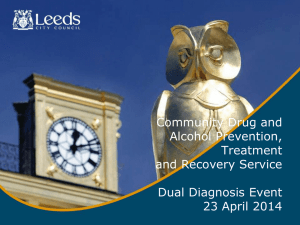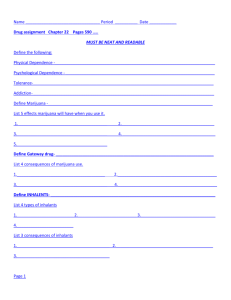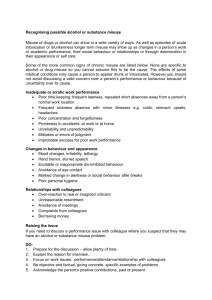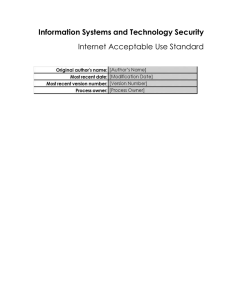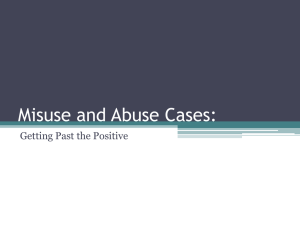An Introduction to Motivational Interviewing in Social Work
advertisement
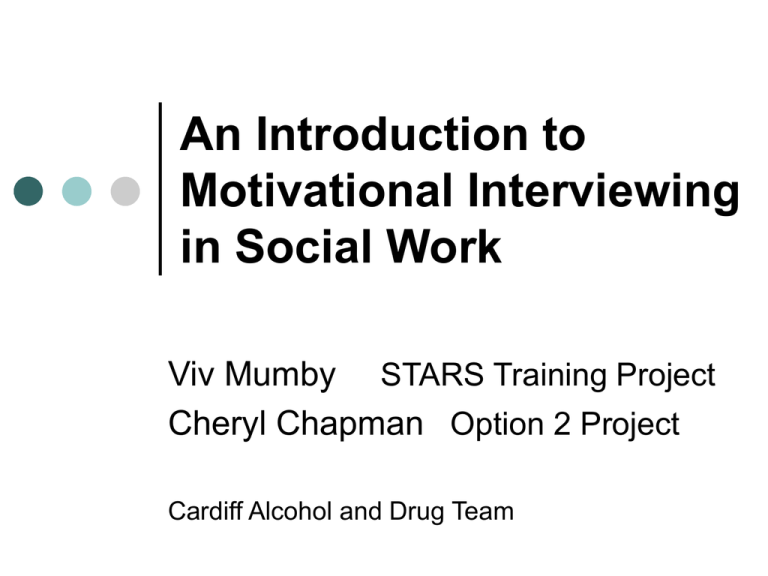
An Introduction to Motivational Interviewing in Social Work Viv Mumby STARS Training Project Cheryl Chapman Option 2 Project Cardiff Alcohol and Drug Team Who are we? Viv Mumby – originally trained as a counsellor 19 years ago. Has been working in substance misuse for 16 years, and training in behaviour change for 12 years. Cheryl Chapman – 16 years experience in the substance misuse field as a social worker. Currently works in the Option 2 Project delivering family based interventions. The difficulties of working with our client group are…. What do we need to do to work effectively with our client group? What do our clients need from us in order to enable them to make changes? Engagement v Assessment What does this mean to you? Deficit v Strengths focus What you pay attention to gets bigger Working motivationally… Encourages positive engagement Acknowledges and works with client resistance Is collaborative, not collusive Can help prevent worker burn-out by enabling you to work ‘smarter not harder’ What is it and where does it come from? William Miller & Steve Rollnick 1st Ed. published 1991: Focus on ‘Addictive’ behaviours 2nd Ed. published 2002 : Wider focus on a variety of applications in a variety of different settings 3rd Edition on its way…. A blend of different therapeutic approaches, inc. Person-Centred, Solution- Focused and cognitive-behavioural ideas/theories with a process model of change Cont.. MI was developed in response to working with client resistance in alcohol treatment in the late 1980’s It works in relatively ‘brief’ interventions It is a more helpful ‘stance’ in working with high levels of resistance in clients than a confrontational or coercive style 2-3 times more effective with black or ethnic minority clients Why M.I.? Recent positive research on MI and social work with parental substance misuse (Forrester et al 2006) 25-35% of childcare cases for allocation involve substance misuse (Cleaver et al 1999) MI particularly effective in engaging and working with adults with substance misuse issues There are to date over 200 controlled trials of MI and substance misuse MI is like a tree? Micro-skills or ‘OARS’ Principles ‘Spirit’ The ‘Spirit’ of MI Collaboration Evocation Autonomy Principles of MI Express Empathy Develop Discrepancy Roll with Resistance Support Self-Efficacy The Micro Skills or ‘OARS’ •Ask Open Ended questions •Affirm •Listen Reflectively •Summarise …………….and •Encourage and elicit Change-Talk Important Concepts in MI Helping Clients develop discrepancy; “the active ingredient underlying motivational interviewing’s efficacy” Originally developed from Festingers Cognitive Dissonance Theory (1957) ALSO… Internal v External motivations to change; Internal motivation is associated with greater long term change. Research shows people with low internal motivation have worse outcomes and people with higher levels of both internal and external motivation are better retained in services and have better outcomes. (Deci and Ryan, 1985, 1987, Curry et al 1991) Transtheoretical Model of Change (Prochaska & DiClemente 1982) Pre-Contemplation Contemplation Determination/ Preparation Lapse Maintenance Action Lifestyle/behaviour change Lapse To Change Behaviour we need to… Recognise the Advantages of Change “Things would be better if I did……” Feel we have the Self-Worth to make the change “I deserve better than this….” Believe in our own Ability “I can do this….” Have knowledge of Alternative Behaviours “What I’m going to do differently is…” ‘Raising’ Ambivalence – Decisional Balance Strategy How does…….fit into your life? What do you like.. How does …work for you? Downsides etc etc…. If you’re still doing this/If nothing has changed in….weeks/months/years, what will life look like/what will be happening? Worst/best case scenario if no change/some change? Where does that leave you/what do you think about that? Feedback Challenges? Opportunities?
